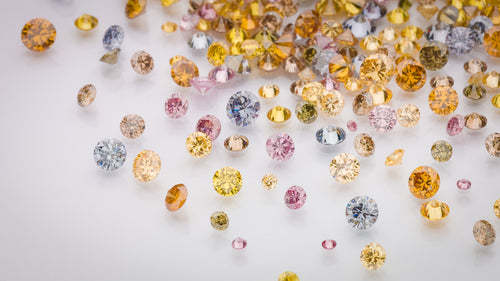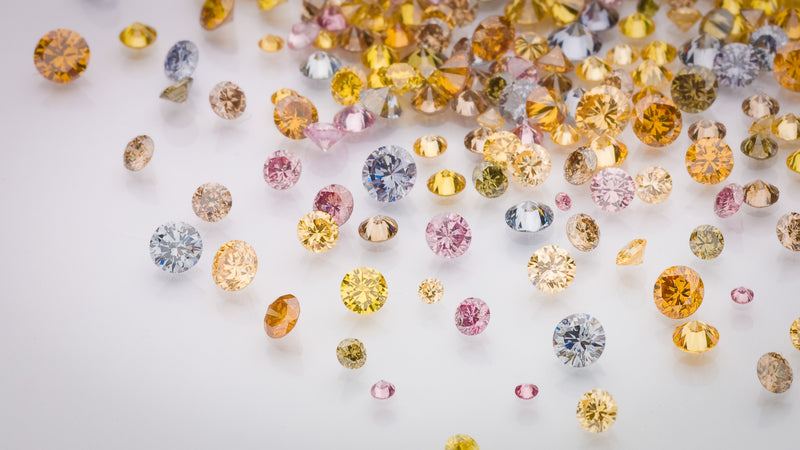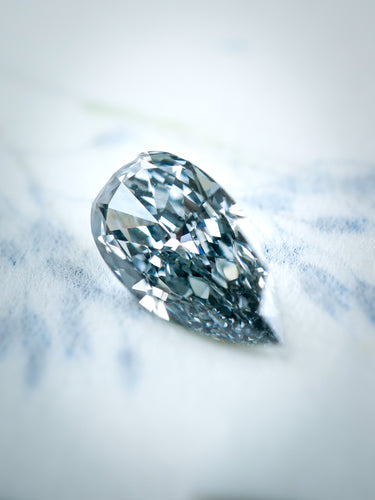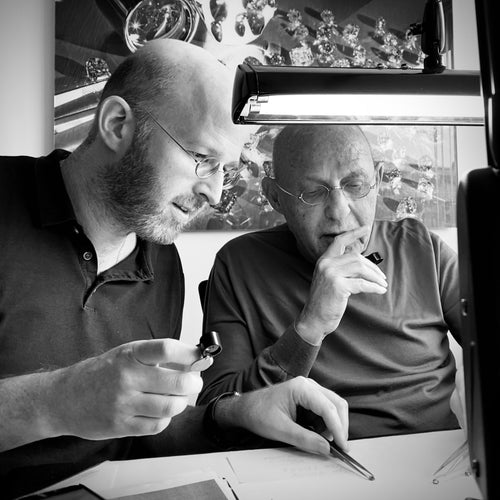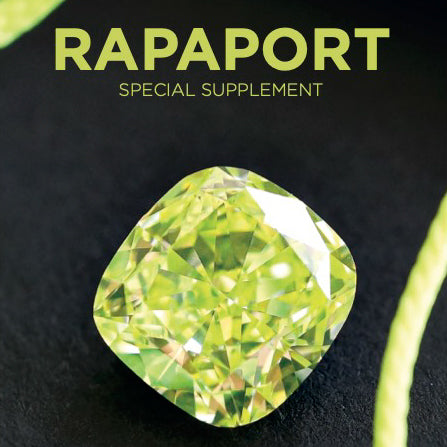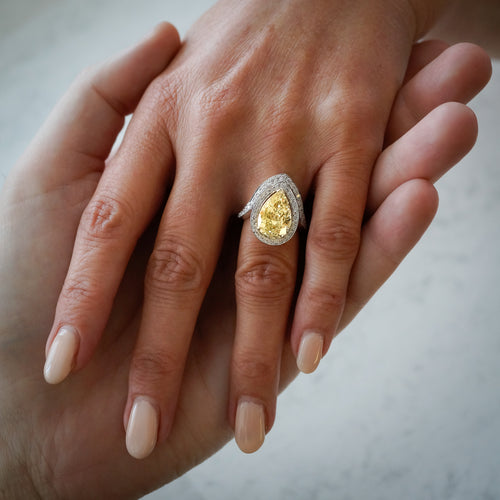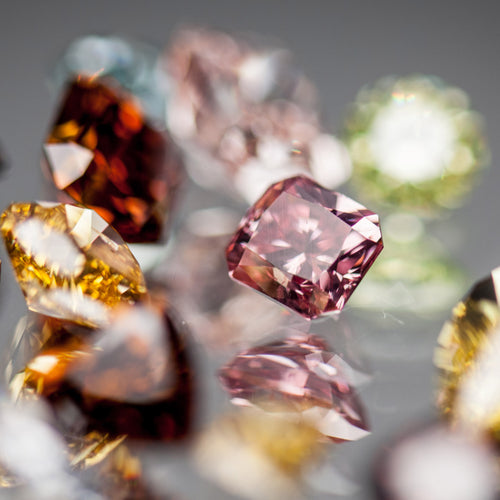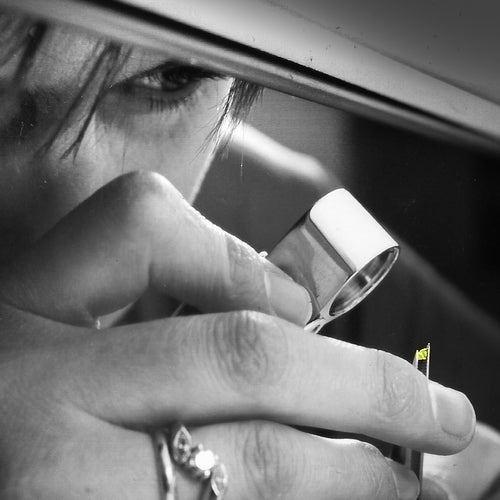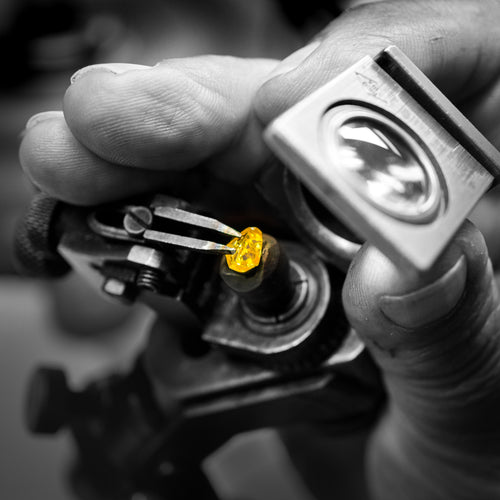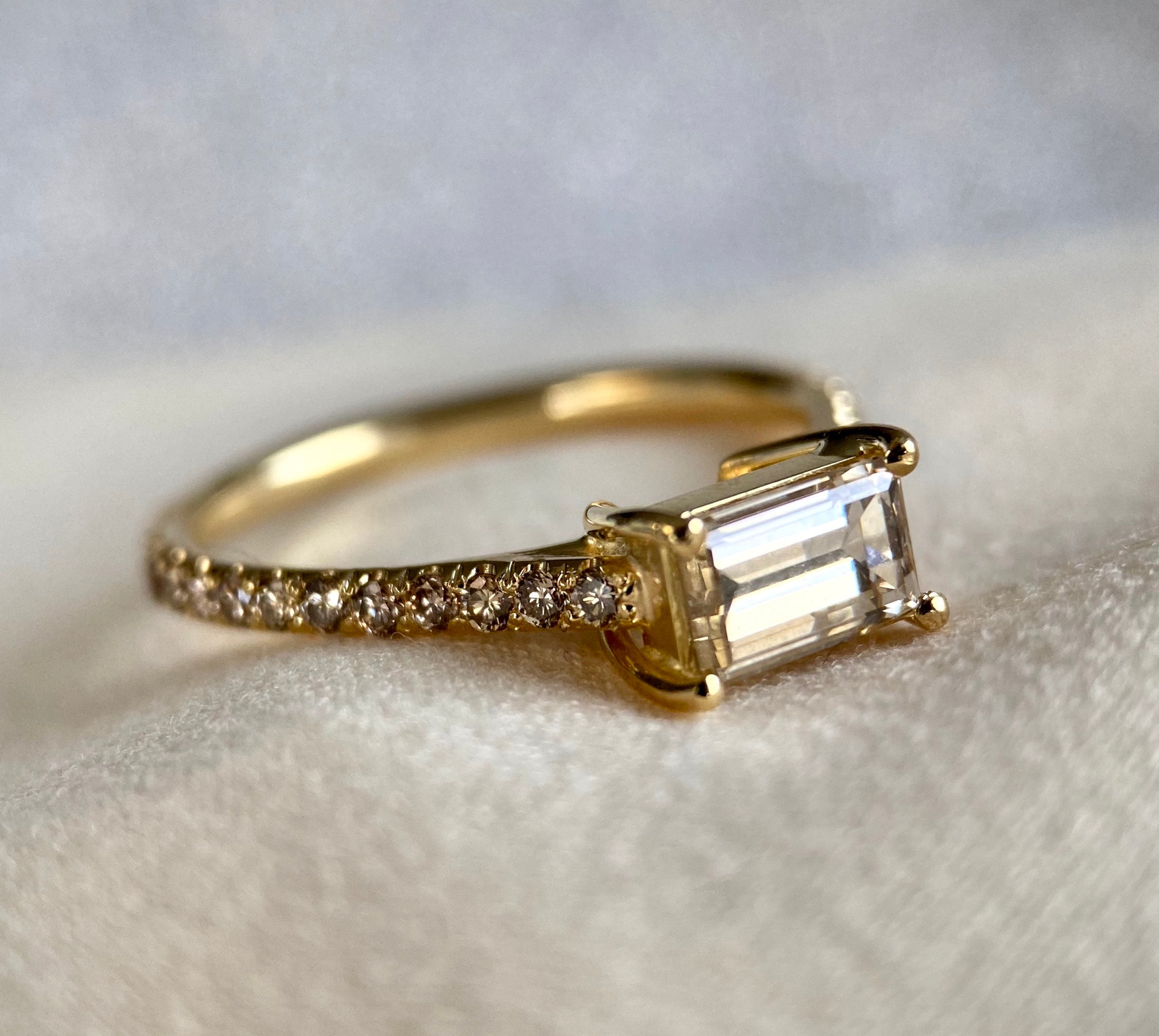


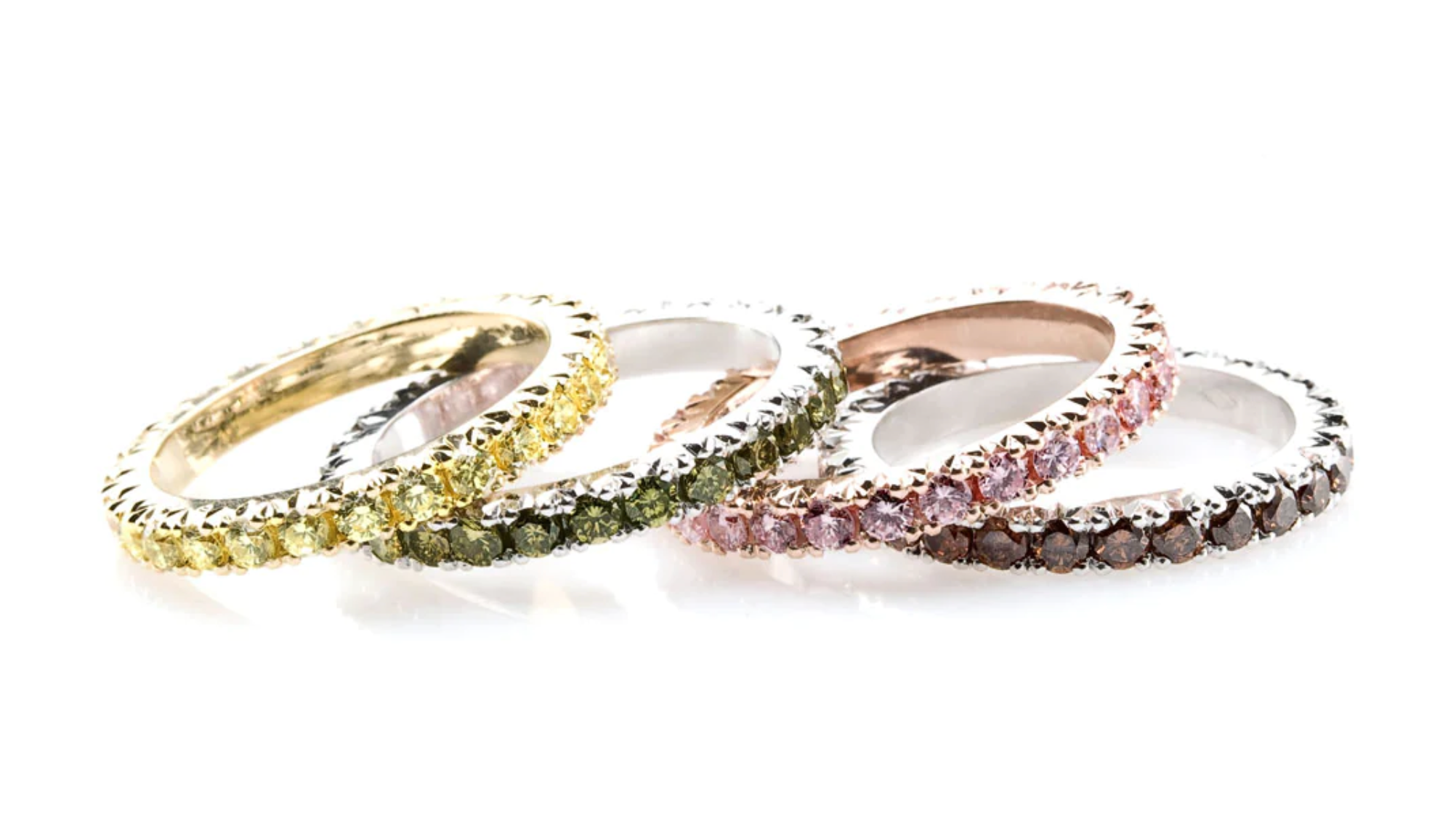

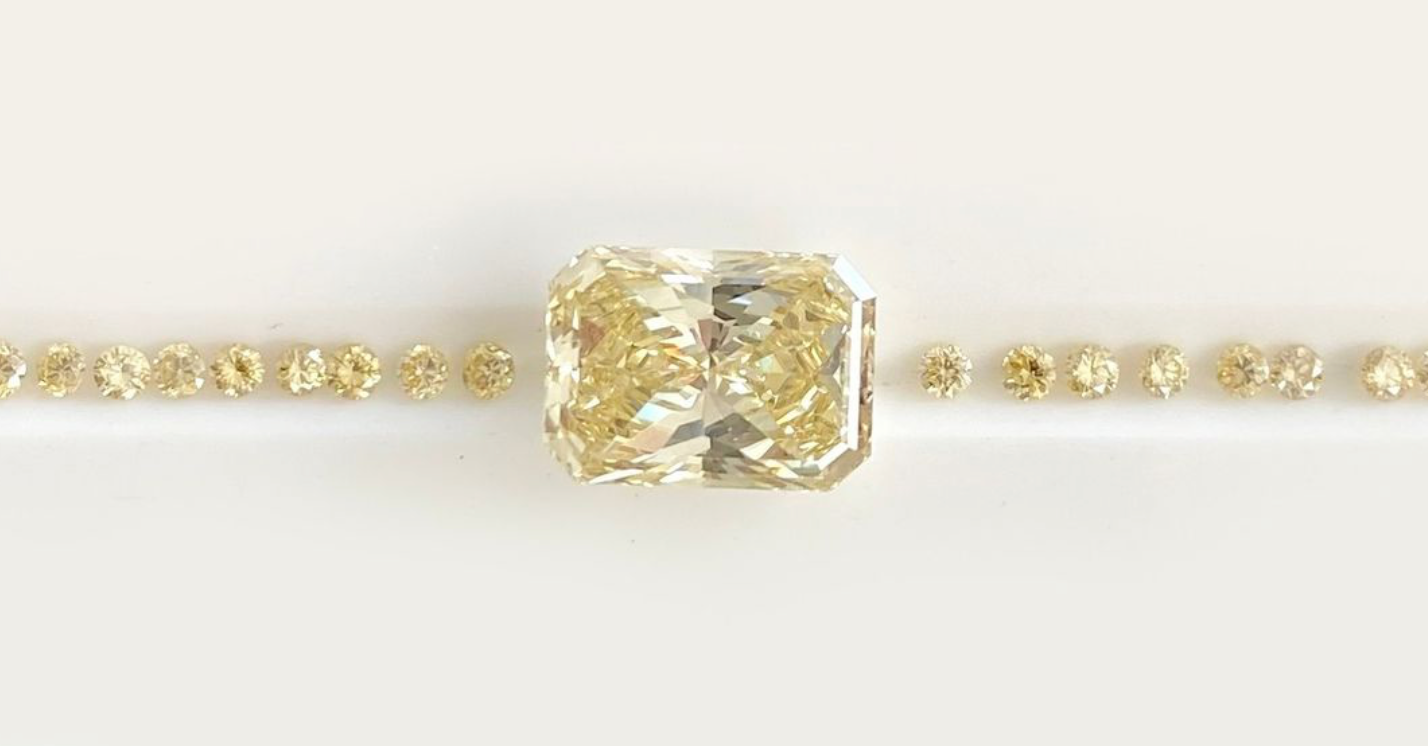
Black Diamonds and the Importance of a Certificate
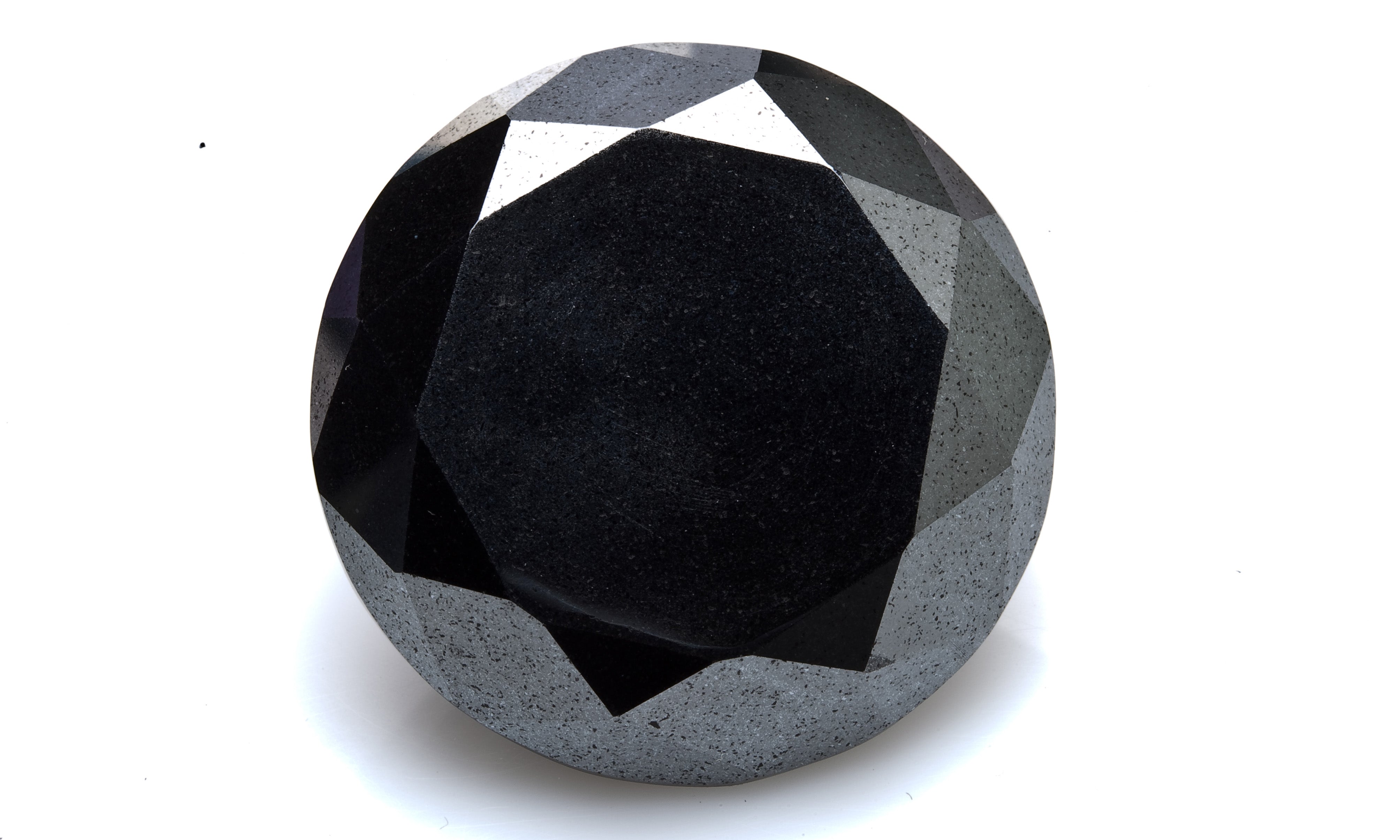
The Difference between Heated and Natural Black Diamonds
A beautiful natural black diamond can be very rare and hence highly sought after, and when you buy black diamonds there are certain things that you need to keep in mind. Most natural black diamonds are typically found with many inclusions, such as scratches and gray spots that contrast against their mirror-like surface. For this aesthetic reason, most of the black diamonds used in the jewelry industry are heated or irradiated. Previously, graphite treatments were also used, but this is no longer the case. It might however be worth to keep in mind for older diamonds.
While we are specialized in natural color diamonds, we make an exception when it comes to black diamonds. Because of the aesthetical difference between the two, we propose both natural black diamonds and heat-treated black diamonds, and we always try to figure out what the client is looking for in order to propose the best option. Typically for someone looking to make a beautiful jewel that is not necessarily intended as an investment, heat-treated black diamonds might be the better option as they are often more pleasing to the eye. On the other hand, a collector of natural color diamonds or someone looking to make an investment might be more interested in a natural black diamond.
Essentially if you are looking for a natural black diamond, you need to be aware of what you are buying in order to ensure that you will not be ripped off because treated black diamonds are fairly common, and they do not have a high value.
Color: Natural fancy black, or
Variety: Untreated natural black diamond
The importance is that the word “natural” is directly associated with the color.
On the contrary if the certificate reads for example:
Color: Black
Origin: Natural diamond
then this calls for caution, as the word “natural” is not directly associated with the color description. To get absolute peace of mind when purchasing a black diamond, we advise buyers who are in doubt to demand a certificate from an internationally renowned laboratory, such as the GIA, the IGI, the EGL or HRD, to be sure that they get what they’re paying for.
